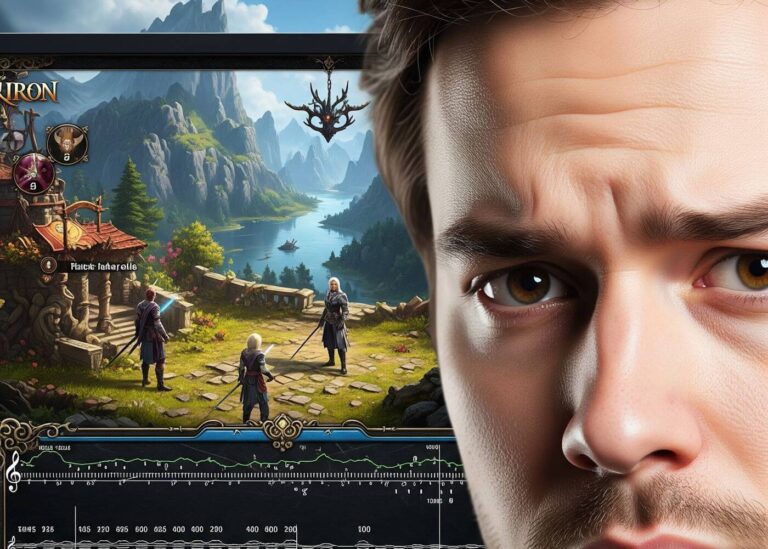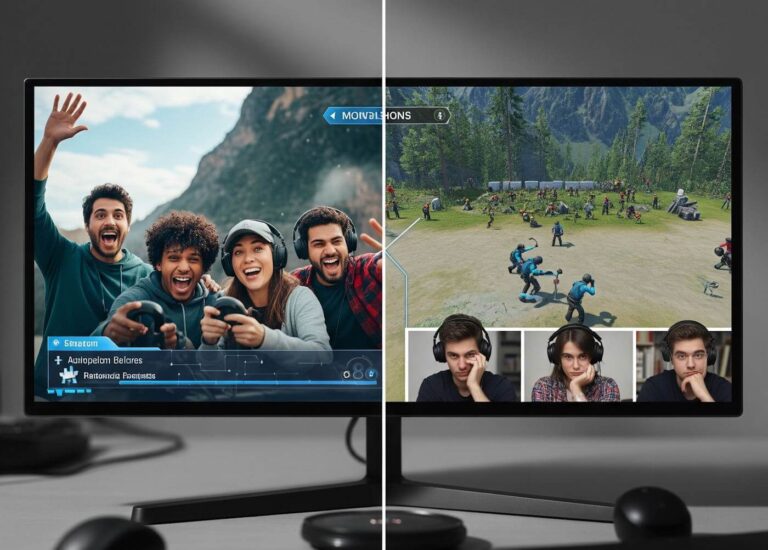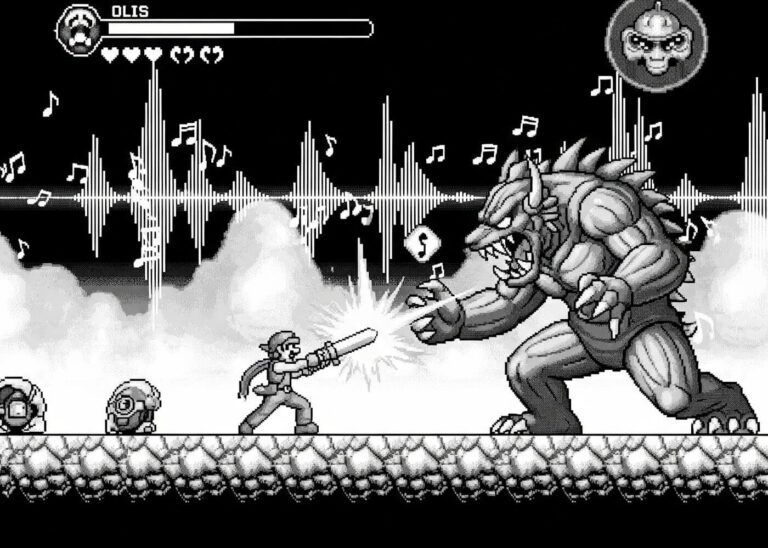Music That Motivates: Soundtracks for Competitive Video Gaming
Music has long been recognized for its ability to influence mood, evoke memories, and even enhance performance in various contexts. Within the realm of competitive video gaming, the impact of music is particularly pronounced, as it can play a crucial role in shaping a player’s psychological and emotional state. As gamers engage in high-stakes environments where focus and motivation are paramount, the selection of a fitting soundtrack becomes an integral aspect of their overall experience.
The psychological effects of music on gamers can be attributed to several factors. Different genres and tracks evoke varying emotional responses, which can significantly affect a player’s performance during gameplay. For instance, high-energy music, such as electronic dance music or rock, can elevate adrenaline levels and invigorate players, motivating them to react more swiftly and decisively. Conversely, more ambient or orchestral sounds may foster a sense of calm, helping players concentrate and reduce anxiety during intense moments in competitive scenarios. Thus, understanding the correlation between music and gaming performance is essential for optimizing one’s gameplay strategy.
Moreover, studies have shown that music can serve as a form of mental conditioning, building a robust psychological environment conducive to success. By curating specific soundtracks tailored to their preferences and gaming objectives, players can create auditory cues that signal focus and readiness, significantly enhancing their in-game experience. These soundtracks act not only as motivation boosters but also as a means to establish a personalized atmosphere that promotes heightened concentration and improved reaction times.
In light of these insights, it is evident that music is not merely an ancillary part of the gaming process but rather an influential force that facilitates improved performance and motivation for gamers. This exploration into the relationship between music and gaming establishes a foundation for appreciating the importance of carefully selected soundtracks in enhancing the gaming experience.
The Science Behind Music and Motivation
Research consistently demonstrates that music has a profound impact on human motivation and performance, particularly in competitive environments such as video gaming. Numerous studies have shown that rhythmic elements and specific tempos can significantly enhance mood and adrenaline levels in participants, making them more engaged and focused during gameplay. The way our brains respond to music is both complex and fascinating, intertwining emotional and cognitive processes that contribute to an individual’s performance.
One key aspect of how music influences motivation is through its ability to stimulate the release of neurotransmitters such as dopamine. This chemical is known to boost pleasure and reward, encouraging players to strive for higher achievements within a gaming context. Competitive video gamers often turn to soundtracks that embody exhilarating rhythms and energizing beats to elevate their experience and enhance their competitive edge. Music’s tempo, for example, can have a direct effect on heart rate and energy levels, which can in turn lead to heightened adrenaline production, pushing gamers to perform at their best.
Studies indicate that the tempo range of 120 to 140 beats per minute often produces optimal effects, aligning perfectly with the fast-paced nature of competitive gaming. Additionally, the psychological aspect of music should not be overlooked; certain melodies can evoke emotions and memories that fuel motivation. This emotional resonance can deepen engagement, making players feel more connected to the game and motivated to excel.
Understanding the science behind music and motivation not only highlights why certain soundtracks are effective, but it also provides insight into how gamers can leverage these beneficial soundscapes to enhance their performance in competitions. The interplay of music, motivation, and competitive spirit is undeniable, ultimately enriching the gaming experience.
Top Genres of Music for Competitive Gaming
In competitive gaming, the right music can serve as a powerful motivator, enhancing focus and providing the necessary energy to perform at peak levels. Several music genres have emerged as favorites among gamers, each offering unique attributes that cater to the demands of intense gaming sessions.
One of the most prominent genres in this context is electronic music. Characterized by driving beats and pulsating rhythms, electronic tracks often feature minimal lyrical content, allowing gamers to focus on the gameplay without distractions. The genre’s subcategories, such as dubstep and trance, are particularly effective in creating an energetic atmosphere that can elevate heart rates and increase adrenaline levels, making them ideal for high-stakes competitions.
Another significant genre is orchestral music, which has gained traction for its cinematic qualities. Orchestral soundtracks, often composed for video games and movies, can inspire feelings of grandeur and urgency. The complex arrangements and dynamic crescendos can motivate players through intense battles, assisting them in maintaining concentration while navigating challenges. Notable examples include compositions from iconic game franchises like “The Legend of Zelda” and “Final Fantasy,” which have been tailored to invoke an immersive experience.
Finally, hip-hop is another genre that resonates strongly with competitive gamers. Blending catchy beats with motivational lyrics, hip-hop can inject energy and confidence into gaming sessions. The genre’s diverse range of tempos and styles allows players to curate playlists tailored to their personal tastes, fostering a sense of empowerment that can enhance performance. Tracks with strong hooks can serve as rallying cries, stimulating players to stay engaged in their gaming endeavors.
Ultimately, the choice of genre is subjective and can vary from one gamer to another. However, electronic, orchestral, and hip-hop remain pivotal in shaping the audio landscape of competitive gaming, providing the momentum required for gamers to excel.
Iconic Video Game Soundtracks That Inspire
Throughout the evolution of video gaming, soundtracks have played a pivotal role in shaping the overall experience. Among the myriad of titles, certain soundtracks have gained iconic status, serving not only to enhance gameplay but also to motivate players in competitive environments. One such game is ‘DOOM’, renowned for its heavy metal soundtrack composed by Mick Gordon. The pulsating beats and aggressive tones foster an intense atmosphere, compelling players to engage fiercely with the game’s relentless action. The blend of frenetic energy and chaotic rhythms pushes players to their limits, making it an unparalleled motivator.
Similarly, the ‘Halo’ series, crafted by the talented Martin O’Donnell and Michael Salvatori, presents a strikingly different yet equally motivational auditory experience. The orchestral arrangements create a sense of heroism and grandeur that amplifies the emotional load of the epic space opera it portrays. Themes like the iconic “Halo Theme” have become synonymous with the franchise, instilling a sense of pride and determination as players traverse their adventurous missions. This combination of orchestration and innovative sound design has not only defined ‘Halo’ but also set a benchmark for future video game compositions.
Another hallmark of motivational soundtracks can be found in the ‘Final Fantasy’ franchise, particularly with compositions by Nobuo Uematsu. Games such as ‘Final Fantasy VII’ feature rich, melodic scores that evoke a wide array of emotions, from despair to hope. Each track intricately weaves into the narrative, enhancing the emotional resonance during pivotal moments. The ability of these soundtracks to inspire and resonate with players contributes significantly to their competitive edge, transforming gaming into a more immersive experience.
Overall, these soundtracks demonstrate how powerful musical compositions can elevate gameplay, energizing players and fostering their determination to succeed in competitive gaming landscapes.
Curating Your Personal Gaming Playlist
Creating a personalized gaming playlist is a rewarding process that can significantly enhance your gaming experience. The right tracks can boost motivation, improve focus, and set the perfect atmosphere for competitive gameplay. To begin curating your playlist, consider your preferences and play style. Different genres can evoke various emotions and energize you in different ways. If you thrive in fast-paced environments, electronic dance music or high-tempo rock tracks may be more suitable, while calmer orchestral pieces might help during strategy-oriented games.
Choosing the right music revolves around understanding the kind of gaming experience you wish to create. For instance, if you enjoy first-person shooters or battle royales, look for tracks with strong beats and dynamic rhythms that can help maintain your adrenaline levels. On the other hand, if your gameplay focuses on exploration or puzzle-solving, softer and more ambient music may provide the backdrop needed for concentration and clarity.
A vital aspect of building your playlist is ensuring a seamless flow. Transitioning from one track to another should feel natural. Aim for a mix of songs that maintains energy levels while providing brief moments of elevation and decline, which can match the highs and lows of your gaming sessions. Play around with the order to identify which combinations resonate with you best.
Further, consider the length of your playlist. A playlist that runs for several hours may prevent disruptions during long gaming sessions. In addition, engage with various music platforms to discover tracks tailored for gaming. Many platforms offer curated playlists designed specifically for this purpose, allowing you to explore new sounds that fit your competitive spirit.
The Role of Streaming Platforms in Gaming Music
In recent years, music streaming platforms such as Spotify and Apple Music have significantly transformed the accessibility and popularity of gaming soundtracks. With the evolution of technology and the internet, the means by which gamers discover and enjoy music has been revolutionized. These platforms offer a broad selection of curated playlists tailored specifically for competitive gaming, enhancing the overall gaming experience.
Curated playlists created by both expert musicians and community members provide gamers with a focused assortment of tracks that can boost concentration and motivation during gameplay. For instance, playlists dedicated to genres such as electronic, orchestral, or synthwave cater to different gaming styles, helping players find the perfect accompaniment for their sessions. These playlists not only feature iconic soundtracks from popular games but also include tracks from indie developers that gamers might not otherwise encounter.
Moreover, music streaming platforms have fostered the emergence of gaming music communities. These online groups and social media pages serve as hubs for enthusiasts to share recommendations, discuss their favorite soundtracks, and even create fan-made playlists. As a result, these communities have encouraged collaboration and engagement among gamers and musicians alike, enriching the culture surrounding gaming music.
Additionally, the role of algorithm-driven recommendations on platforms like Spotify and Apple Music cannot be understated. By analyzing users’ listening habits, these algorithms curate personalized playlists that introduce gamers to new tracks and artists, which they may not have discovered independently. This personalized approach promotes a greater appreciation of gaming music and its varied genres, helping to sustain and expand the audience for gaming soundtracks.
Thus, the influence of streaming platforms on gaming music is profound, providing gamers with unprecedented access to a wealth of soundtracks while fostering community interaction and discovery. The modern gamer can now navigate a diverse array of musical offerings, ultimately enhancing their competitive gaming experience.
Real-Life Testimonials from Gamers
Many gamers have attested to the profound impact music has on their performance and mindset during competitive gameplay. Anecdotes and stories abound, illustrating how various soundtracks have served not just as background noise, but as crucial elements that enhance concentration, mitigate stress, and elevate overall gameplay. One competitive player recalls, “During intense matches in ‘League of Legends,’ the right music can transform my focus level. I play my personal playlist, which includes orchestral soundtracks from various games, and it genuinely helps me tune out distractions. It feels like I’m in a different world, ready to take on any challenge.”
Another well-known streamer shared their experience of discovering how specific genres of music can influence their performance. “While preparing for a major tournament in ‘Fortnite,’ I stumbled upon a track that has a steady beat, which not only motivated me but also synchronized with my in-game movements. The music became an integral part of my routine leading up to the competition. When the bass dropped at a pivotal moment in the game, I found myself reacting faster and making better decisions.” This resonates with many gamers who perceive the rhythm and flow of music as a catalyst for peak performance and reaction times during high-pressure scenarios.
Moreover, a study from a gaming community highlighted the role of music in team dynamics. Players reported that listening to an energetic soundtrack as a team created a shared sense of exhilaration and motivated them to work collaboratively towards their shared goal. One participant noted, “Playing games like ‘Valorant’ without music feels empty; the right soundtrack can inject a bit of adrenaline into our strategy meetings, making every play feel more purposeful.” These real-life testimonials reinforce the idea that the motivational power of music is not just a personal experience but a universal phenomenon in the gaming world.
The Future of Music in Video Gaming
The future of music in video gaming is poised for significant transformation, driven by technological advancements and evolving player expectations. As developers increasingly recognize the importance of soundtracks, there is a clear movement towards creating immersive audio experiences that enhance gameplay. One noteworthy trend is the integration of adaptive soundtracks that respond dynamically to player actions. This innovation allows the music to shift in real-time, effectively reflecting the intensity of the game and providing a more engaging atmosphere.
Adaptive music is not just about mere background tunes; it actively influences player behaviors and emotions, shaping their overall experience. For instance, as a player approaches a boss fight, the soundtrack may transition to more intense and dramatic compositions, instilling a sense of tension and urgency. This kind of tailored musical experience can enhance the competitive edge, offering players an audio cue that aligns with their performance or in-game decisions. The synergy between game mechanics and rightfully timed sound scores has the potential to redefine player engagement.
Moreover, advancements in artificial intelligence and machine learning are paving the way for even more sophisticated audio design. These technologies could enable soundtracks that learn from players’ styles, preferences, and achievements, creating unique audio profiles for individual players. Imagine a competitive gaming environment where the soundtrack evolves based on a player’s skill level and personal journey within the game. Such innovations hint at a future where music is not only a backdrop but a critical component of strategy and gameplay.
As competitive gaming continues to grow and attract diverse audiences, the role of music within games will become more pronounced, making it a powerful tool for enhancing user experience and fostering community among players. The evolving landscape indicates that video game soundtracks will not merely accompany gameplay but will be intricately woven into the fabric of competitive gaming itself.
Conclusion: The Importance of Music in Competitive Gaming
In the realm of competitive video gaming, music serves as more than just a background enhancement; it emerges as a vital component that influences gameplay, emotional engagement, and overall performance. Through the discussions presented, it is evident that an appropriate soundtrack can profoundly impact a player’s concentration and motivation. Soundtracks tailored for competitive gaming often feature fast-paced rhythms and energizing melodies that help players maintain focus and combat fatigue during intense gaming sessions.
Moreover, the significance of music in establishing a mood cannot be overstated. It helps to create an immersive atmosphere that enhances the gaming experience, fostering a strong connection between the player and the gaming environment. As players encounter challenging scenarios within their games, a well-curated soundtrack can provide the emotional uplift necessary to push through difficult moments. Thus, it becomes essential for gamers to consider how music can serve as a motivational tool that accompanies their journey.
The exploration of various genres and soundtracks reveals a rich tapestry of options that cater to the diverse preferences of gamers. From orchestral compositions to electronic beats, each type of music can resonate differently, allowing players to discover what actively fuels their competitive spirit. Integrating music into the gaming routine not only elevates enjoyment but can also improve focus and performance, making it a key aspect of a successful gaming strategy.
Encouraging players to actively seek out and incorporate their preferred soundtracks into their gaming experience can lead to enhanced motivation and enjoyment. The power of music in competitive gaming is undeniable, and its role deserves recognition and appreciation for the positive effects it brings to both performance and the overall gaming experience.







